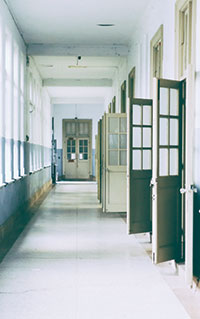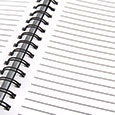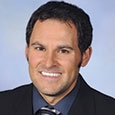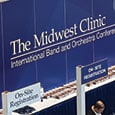Whether walking into your first job or changing to a new position, the transition is always exciting. Before my first job, I got the same advice many people hear: “Don’t make any changes for the first four years, and you’ll be fine,” “Don’t smile until October,” and “They’re going to hate you anyway, so do what you want.” Having changed positions three times, I have collected some more helpful lessons along the way, and I hope to offer a different perspective.

First Days
Organize your workspace and classroom. When you buy a house, the best time to paint and get repairs done is right away. The same is true for your workspace. Get it set up how you want it. If your new position includes a student leadership group, organize a time to work on their space with them. This is an excellent opportunity to talk directly with them and ask questions.
Communicate and meet with colleagues and learn names. Meet the maintenance workers, clerical staff, administrators, teachers, and anyone else you might ever need to ask for something. Find where strained relationships previously existed and repair them. My first principal, Chuck Dill, told me, “The best thing you can do is take someone out to breakfast and pick up the bill. It doesn’t cost much and is always appreciated.” If you have a music booster or colleague you will be working closely with, they would be an ideal candidate.
Set up a day to meet students. Children want to feel like you have a personal interest in them beyond being a part of your ensembles. Use a first meeting to get to know them as musicians, but also as people. A pizza, ice cream, or barbecue party is sure to go over well, or if you are a sloppy eater, consider a game night.
Learn as much about your community culture, school culture and students as possible. Go beyond 504 plans, socio-economic information, and statistics. Get in town, talk to people, and ask questions. Knowledge is power. Also, not everything is as it seems from appearances. Find real data. Try looking at communications, digital access portals, and online calendars from the parent or student access views. Attend a school event before you are known in the community and see what strikes you about the students, parents, workers, volunteers, PA announcements, signage, and directions. Take note of what you find impressive, frustrating, or confusing, and try to incorporate or improve it for your events.
Survey students and parents. Learn what their favorite parts of the music program are, where they want to see the program, and whether they have seen another program they really liked at a festival. Use their feedback as a starting point for conversations. As much as you might want to use it as a retort to a criticism, only use it for your own planning. Google Forms are great for gathering information digitally and anonymously. Also consider hosting meetings with students on a regular basis. If you bring food, students will be willing to come and communicate their thoughts more openly. Having the opportunity to bounce an idea off of a group of students will increase buy-in, and that might spread to their friends, too. With some luck, you will cut down on the amount of times you hear, “This isn’t what the old band director did,” because you will have already received peer approval. Beware of creating a Favorites Club. Have some rotation of students who you solicit for feedback. Make it clear from the beginning that you want to rotate members so you can keep fresh perspectives.
Learn about as many procedures, practices, and traditions as possible. Try to be open minded. The smallest things can be incredibly important to students – to the extent that they can make a difference between someone quitting the program or staying. Tradition can be a word that will drive you nuts, but learn as much as possible and then be ready to make some decisions here.
Conduct an inventory of the program’s assets. If anything is missing, there is only a short window before it is your fault. Make sure you have accurate and up-to-date records of everything you can get an inventory of (music, instruments, furniture). Do not just count, make note of condition.
Make wish lists. Along with inventory, make note of items you need to buy or repair and prioritize them. You never know when an administrator might come around asking if you need anything or looking for a list you can send to a group wanting to donate to the school. Have that information in hand and ready to send.
Buy a box of thank-you cards. A quick note for a small favor can really go a long way. After a larger undertaking, buy people who helped a coffee or box of doughnuts. They’ll remember that you genuinely appreciated their help.
Put a huge star on your first public performance. Think through it and use it as your opportunity to make an impression. If it’s not everything you hoped, that is okay too. Still, plan on it being great.
Create a calendar with deadlines and reminders for yourself. There will be events and deadlines that sneak up on you. Have a system for staying organized and set reminders that work for you. Many online calendars have reminders that will text you to help from forgetting about a meeting.
Plan and dream. Work toward repertoire, lessons, ensembles, experiences, field trips, and guest clinicians, but avoid planning so you are locked in. Be ready to make changes on the fly. You may find out that your school’s fire alarms go off every week. The school might flood, leaving you teaching at the old Burger King down the street. The rehearsal space you were counting on could be used to host a meet, with teams coming from several states in the next 15 minutes. They just fertilized the fields. Be ready.
Be realistic about your abilities and deficiencies. If you cannot do something yet, go learn. If you are really good at something that is not part of your position, look to incorporate that.
When the Year Starts
Be consistent. Before you have your first rehearsal conflict, lost music, damaged instrument, or repeat bathroom pass offender, come up with classroom expectations and a policy for conflicts or problems. It is worth looking at what the previous director did and what surrounding programs do. However, once you communicate a policy, stay consistent with it. When appropriate, reevaluate your policy, and communicate if you need to change things, explaining why they are changing.
If you make a mistake, own it. If you do not know something, do not try to hide it; be honest and go learn it. Honesty is always the best policy. A friend of mine who used to work in the restaurant industry shared his best customer service tip: “If you make a mistake, first apologize, and then ask what you can do to make it better.”
Start on a four-year plan. Will you be traveling? Playing Midwest or a state convention? Will you be a GRAMMY Signature School? Do you need to buy new electric cellos? You will probably need to build the program to get to those points. Consider your professional goals, what your community wants, and what your families want, and go from there.
Do not forget that you are the professional music educator. Sometimes the data and information you collect will be at odds with the potential you see (or your personal skills). It is okay to take some risks every once in a while too.
Get your ego a new place to live for a while. You might say and do the exact same things as your predecessor, but some students will still dislike you simply for not being your predecessor. Do not take it personally. A good friend gave me some of the best advice: there will be a group of kids you will probably never get on your side. Invest your time and energy into other students. Have a freshman class meeting or rehearsal. Talk to these students at their entrance into your program. Learn about them and let them know you are interested in their experiences.
If you are having problems with a student who does not like you, do not force it. You can try to talk to them, but it might not work. An approach I have had success with is individually asking such students for a favor.
Develop relationships with colleagues with whom you can collaborate, strategize, and plan with. This profession has some of the most amazing and creative people. Some of the music teachers in your district or community will be around you for your whole career, and some may become your closest friends. As you are leaning about your new position, it helps to be able to have another person trying to accomplish great things to plan along with.
Along the Journey
Advocate for and publicize yourself. Chances are you will not have a public relations agent. It is good to be humble, but you will likely want to be rehired, too. If you get recognition or a good rating at a festival, put a copy in the principal’s mailbox. If a parent sends you a nice email, forward it along to someone in your administration as well.
Consider the digital image of your program. Before you do anything, talk to your administration. Your district may have strict policies in place. Most students will want to advertise what they are a part of on their social media accounts, and this includes sharing photos and videos. If you are not contributing to the conversation, you might be missing out. If you are not tech savvy, find someone who you can trust and assign this person to a social media booster position. Many people will learn about your program from what they can find online, and this is a great way to learn about other successful programs as well.
Look forward to year two. There will be mistakes and missteps, but if you learn from them, you will only improve as an educator. Be honest with yourself and others on your year: reflections, lessons learned, and goals.
Journal and reflect. For several years now, I have made a habit of reflecting after each major event that passes. These journal entries have been invaluable to look at when that event comes back around. At the end of a marching season I write about what was effective and what was not. I keep track of which exercises we did and what we should have done more of. After a run-out jazz gig, I will write about how I felt the programming went and the physical set-up. After a jazz festival at which my students were being really goofy, I realized that I had not talked about behavioral expectations. I did so, and the next festival was great.
Find time to work out, read, vacation, go out to dinner, and relax. Teaching is a wonderful profession, but it is still just a job. If I could go back to my first year teaching, I would take a vacation (I didn’t for several years), eat better, and exercise. While you are planning your work life, don’t forget about your home life. You might need to write time away from work into your schedule, but you will be glad you did.






